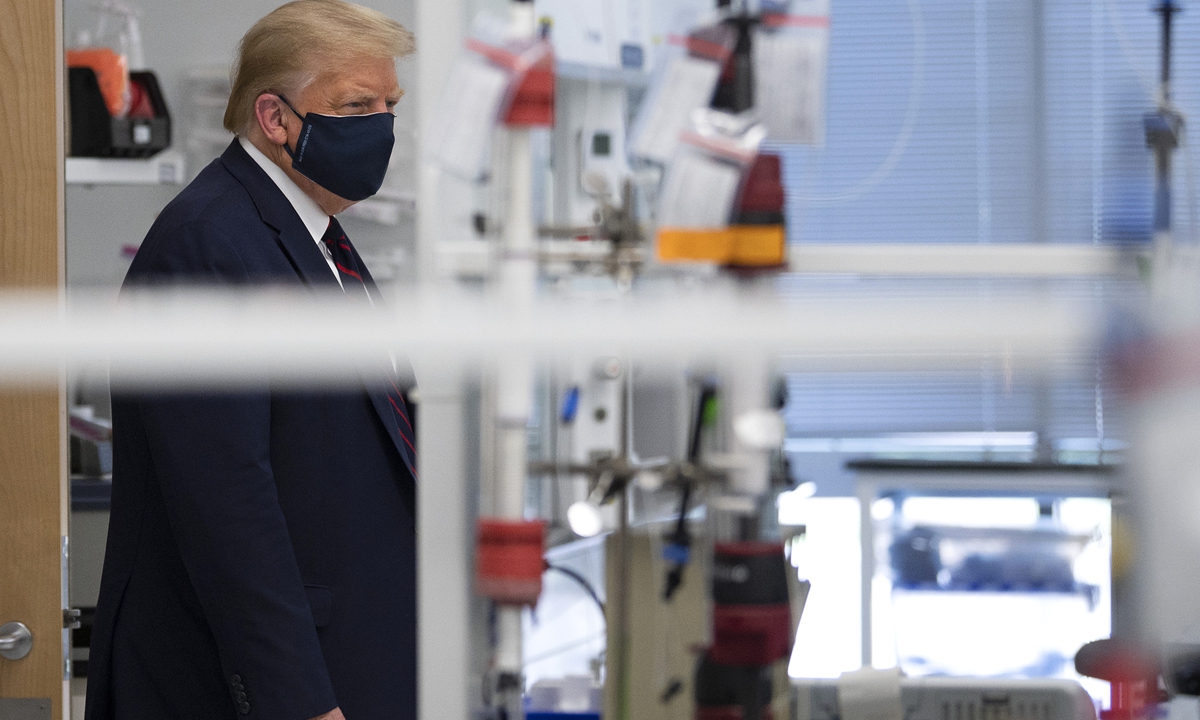
US President Donald Trump wears a mask as he tours a lab where they are making components for a potential vaccine at the Bioprocess Innovation Center at Fujifilm Diosynth Biotechnologies in Morrisville, North Carolina on Monday. According to data from Johns Hopkins University, infection cases in the US surpassed 4.29 million and the death toll reached 148,295 as of press time on Tuesday. Photo: AFP
U.S. President Donald Trump on Tuesday renewed his defense of using anti-malaria drug hydroxychloroquine against COVID-19, despite medical evidence disproving its effectiveness.
"It's safe. It doesn't cause problems. I had no problem. I had absolutely no problem," Trump said during a press briefing at the White House. "It didn't get me, and it's not going to, hopefully, hurt anybody."
The president was referencing his own use of hydroxychloroquine earlier this year.
"I took it for a 14-day period," he said. "Many doctors think it's extremely good, and some people don't ... I think it's become very political."
The remarks came more than a month after the U.S. National Institutes of Health (NIH) stopped a clinical trial to assess the safety and effectiveness of hydroxychloroquine for the treatment of patients with the coronavirus.
A data and safety monitoring board "determined that while there was no harm, the study drug was very unlikely to be beneficial to hospitalized patients with COVID-19," the NIH said in a press release.
Anthony Fauci, a top infectious diseases expert and key member of the White House coronavirus task force, warned early Tuesday against using hydroxychloroquine for the coronavirus treatment.
"The overwhelming prevailing clinical trials that have looked at the efficacy of hydroxychloroquine have indicated that it is not effective in coronavirus disease," Fauci said on ABC's "Good Morning America."
Hydroxychloroquine is used to treat malaria and rheumatoid conditions such as arthritis, according to the NIH.
"In various studies, the drug had demonstrated antiviral activity, an ability to modify the activity of the immune system, and it has an established safety profile at appropriate doses, leading to the hypothesis that it may have also been useful in the treatment of COVID-19," the agency explained. Enditem
